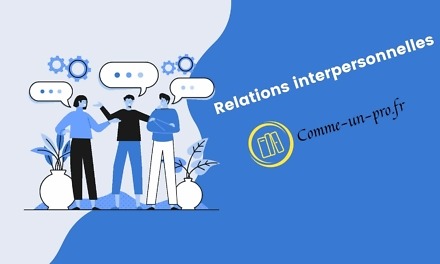In both the family and the professional environment, knowing how to listen makes it possible to solve or avoid many problems and soothe many situations. This is the reason why everyone must learn to listen to the other in order to better understand what they are saying, with a view to constructive dialogue. However, such a skill is not innate, it is acquired with practice. How and why to listen effectively? Here are the answers.
What to listen?
Shut up and talk little
Listening means first and foremost being silent and letting the other person express themselves or say what they think about a situation. So you must be careful not to cut him off by telling him a similar situation experienced recently or a similar memory. In fact, it's not about you, it's about the person. Also, when someone wants to talk to you, it's rarely to hear you talking about you. What he seeks is to be listened to, so let him speak if you have agreed to listen to him.
Stay focused on the person and what they say
Listening is also staying focused on the person and what they say. That means, do not think about what you'll be able to answer, but first try to understand his situation. Giving him a listening ear is indeed the only way to help him, which makes you forget your own concerns to better focus on his own. So, do not worry about what you can answer, focus first on what she tells you.
Stay neutral
Being able to listen also means looking serenely and quietly at the other person while she speaks without trying to dominate or judge her. Indeed, if your attitude shows the opposite, it can mean to your interlocutor that it annoys you and it will cut short the maintenance or the conversation. Whatever may be the ultimate goal of the latter, it is a lost effort, because the other may not confide again or retract.
The goal of listening attentively is to be able to exchange or share ideas with the person in order to find an outcome or a solution to the problem that brings you together. Staying neutral and objective allows you to take a big step toward solving problems and delivering relevant advice as needed.
Ask the right questions
To get to the bottom of the problem, you need to ask the right questions. This is valid whether it is a job interview, reasons for absence from work or other. By posing them directly, you are sure to be able to draw precise answers, which will allow you to have some clarification on the subject. Thus, if shadows persist, you will know it immediately and get quality information.
Do not judge the person
As explained before, do not make any judgment on the person, but remain objective, so to adopt the gestures, the look and the intonation of voices which lend themselves to it avoids the complications. This attitude is particularly recommended in case of conflict between several protagonists or other. This means that you are not taking sides and that you are only trying to find the best thing to do to fix the situation.
Be interested in what the other person is saying
You must also be interested in what the person is saying. Indeed, it can not be convinced if you do not show the visual and verbal signs that prove that you pay all your attention. For example, check her head from time to time to encourage her to continue her explanation or to signify that you agree with what she says. If you find it difficult when you practice a profession that requires listening skills, you must train and practice exercises.
Do not offer advice
In some situations, if the other person does not ask for advice, do not give them any advice. It may be that he is only looking for an attentive and compassionate ear, just to relieve himself of enormous weight. In case he complains about you or your reaction, let him speak and empty his bag as they say. Once he has finished speaking, try to explain things to him calmly and put all the necessary points in the clear.
So, he will know that you really listen to him and that he will not have to always repeat the same thing in case of complaints.
Being empathetic
Without agreeing with your interlocutor, you can listen to it, but instead of objecting, you can see the situation from your point of view. By proceeding as such, you are sure to understand it better and to take another view of your point of view. Without necessarily accepting what the other person thinks or says, you can adopt a good attitude in front of him to calm the situation.
But listening does not mean being available or unavailable at any time
However, some cases are exceptions to the rule. Indeed, although it is a know-how or a disposition to relate to others, having this ability to listen should not be confused with invasion or indifference.
Do not let others grab you
Do not listen for fear of not being caring or loving enough. Indeed, it is impossible for you to listen to everyone and to try to solve all the possible and imaginable problems by yourself. You must distinguish between objective listening and subjective listening, which may turn you into a sponge that will suck up all the worries of your colleagues without really being able to solve any of them.
Do not hear what is said
The opposite behavior would be to pretend to listen, some people do not really pay attention to what they are told. Their only concern is to be able to provide arguments, without listening to what the other really wants to know. So they just don't care about those who don't function like them and don't even bother to pretend to care about them most of the time.
The middle ground between these two extremes would be to be empathetic without having to be distracted by people who always have something to blame others or become too distant.




